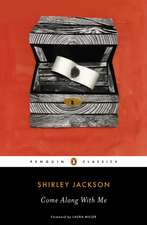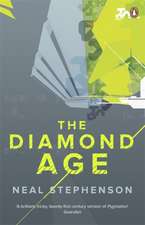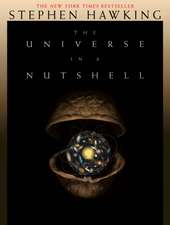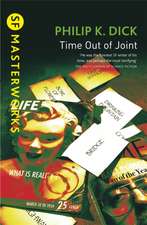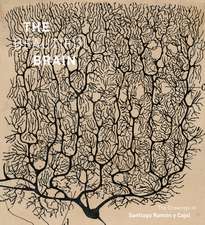Do Androids Dream of Electric Sheep?
Autor Philip K. Dicken Limba Engleză Paperback – 9 mai 2050
Inspiration
for
the
classic
filmBlade
Runnerand
the
upcoming
sequel,Blade
Runner
2,in
theaters
Fall
2017
Nominated for the Nebula Award
"The most consistently brilliant science fiction writer in the world." —John Brunner
By 2021, the World War had killed millions, driving entire species into extinction and sending mankind off-planet. Those who remained coveted any living creature, and for people who couldn’t afford one, companies built incredibly realistic simulacrae: horses, birds, cats, sheep . . . They even built humans.
Nominated for the Nebula Award
"The most consistently brilliant science fiction writer in the world." —John Brunner
By 2021, the World War had killed millions, driving entire species into extinction and sending mankind off-planet. Those who remained coveted any living creature, and for people who couldn’t afford one, companies built incredibly realistic simulacrae: horses, birds, cats, sheep . . . They even built humans.
Emigrées
to
Mars
received
androids
so
sophisticated
it
was
impossible
to
tell
them
from
true
men
or
women.
Fearful
of
the
havoc
these
artificial
humans
could
wreak,
the
government
banned
them
from
Earth.
But
when
the
androids
didn’t
want
to
be
identified,
they
just
blended
in.
Rick
Deckard
was
an
officially
sanctioned
bounty
hunter
whose
job
was
to
find
rogue
androids,
and
to
retire
them.
But
cornered,
androids
tended
to
fight
back,
with
deadly
results.
| Toate formatele și edițiile | Preț | Express |
|---|---|---|
| Paperback (5) | 47.09 lei 3-5 săpt. | +37.04 lei 7-13 zile |
| Orion Publishing Group – 16 feb 2012 | 47.09 lei 3-5 săpt. | +37.04 lei 7-13 zile |
| Orion Publishing Group – 29 mar 2010 | 47.81 lei 3-5 săpt. | +23.17 lei 7-13 zile |
| Orion Publishing Group – 27 oct 2022 | 47.84 lei 3-5 săpt. | +23.26 lei 7-13 zile |
| Orion Publishing Group – 8 mar 2007 | 47.97 lei 3-5 săpt. | +23.48 lei 7-13 zile |
| Del Rey Books – 30 apr 1996 | 91.57 lei 3-5 săpt. | +15.49 lei 7-13 zile |
Preț: 112.14 lei
Nou
Puncte Express: 168
Preț estimativ în valută:
21.46€ • 22.38$ • 17.84£
21.46€ • 22.38$ • 17.84£
Carte nepublicată încă
Doresc să fiu notificat când acest titlu va fi disponibil:
Se trimite...
Preluare comenzi: 021 569.72.76
Specificații
ISBN-13: 9780547572345
ISBN-10: 0547572344
Pagini: 240
Dimensiuni: 135 x 203 mm
Greutate: 0.45 kg
Editura: Houghton Mifflin Harcourt
Colecția Mariner Books
Locul publicării:United States
ISBN-10: 0547572344
Pagini: 240
Dimensiuni: 135 x 203 mm
Greutate: 0.45 kg
Editura: Houghton Mifflin Harcourt
Colecția Mariner Books
Locul publicării:United States
Extras
1
A merry little surge of electricity piped by automatic alarm from the mood organ beside his bed awakened Rick Deckard. Surprised — it always surprised him to find himself awake without prior notice — he rose from the bed, stood up in his multicolored pajamas, and stretched. Now, in her bed, his wife Iran opened her gray, unmerry eyes, blinked, then groaned and shut her eyes again.
“You set your Penfield too weak,” he said to her. “I’ll reset it and you’ll be awake and —”
“Keep your hand off my settings.” Her voice held bitter sharpness. “I don’t want to be awake.”
He seated himself beside her, bent over her, and explained softly. “If you set the surge up high enough, you’ll be glad you’re awake; that’s the whole point. At setting C it overcomes the threshold barring consciousness, as it does for me.” Friendlily, because he felt well-disposed toward the world — his setting had been at D — he patted her bare, pale shoulder.
“Get your crude cop’s hand away,” Iran said.
“I’m not a cop.” He felt irritable, now, although he hadn’t dialed for it.
“You’re worse,” his wife said, her eyes still shut. “You’re a murderer hired by the cops.”
“I’ve never killed a human being in my life.” His irritability had risen now; had become outright hostility.
Iran said, “Just those poor andys.”
“I notice you’ve never had any hesitation as to spending the bounty money I bring home on whatever momentarily attracts your attention,” He rose, strode to the console of his mood organ. “Instead of saving,” he said, “so we could buy a real sheep, to replace that fake electric one upstairs. A mere electric animal, and me earning all that I’ve worked my way up to through the years.” At his console he hesitated between dialing for a thalamic suppressant (which would abolish his mood of rage) or a thalamic stimulant (which would make him irked enough to win the argument).
“If you dial,” Iran said, eyes open and watching, “for greater venom, then I’ll dial the same. I’ll dial the maximum and you’ll see a fight that makes every argument we’ve had up to now seem like nothing. Dial and see; just try me.” She rose swiftly, loped to the console of her own mood organ, stood glaring at him, waiting.
He sighed, defeated by her threat. “I’ll dial what’s on my schedule for today.” Examining the schedule for January 3, 2021, he saw that a businesslike professional attitude was called for. “If I dial by schedule,” he said warily, “will you agree to also?” He waited, canny enough not to commit himself until his wife had agreed to follow suit.
“My schedule for today lists a six-hour self-accusatory depression,” Iran said.
“What? Why did you schedule that?” It defeated the whole purpose of the mood organ. “I didn’t even know you could set it for that,” he said gloomily.
“I was sitting here one afternoon,” Iran said, “and naturally I had turned on ‘Buster Friendly and His Friendly Friends’ and he was talking about a big news item he’s about to break and then that awful commercial came on, the one I hate; you know, for Mountibank Lead Codpieces. And so for a minute I shut off the sound. And I heard the building, this building; I heard the —” She gestured.
“Empty apartments,” Rick said. Sometimes he heard them at night when he was supposed to be asleep. And yet, for this day and age a one-half occupied conapt building rated high in the scheme of population density; out in what had been before the war the suburbs, one could find buildings entirely empty . . . or so he had heard. He had let the information remain secondhand; like most people he did not care to experience it directly.
“At that moment,” Iran said, “when I had the TV sound off, I was in a 382 mood; I had just dialed it. So although I heard the emptiness intellectually, I didn’t feel it. My first reaction consisted of being grateful that we could afford a Penfield mood organ. But then I realized how unhealthy it was, sensing the absence of life, not just in this building but everywhere, and not reacting — do you see? I guess you don’t. But that used to be considered a sign of mental illness; they called it ‘absence of appropriate affect.’ So I left the TV sound off and I sat down at my mood organ and I experimented. And I finally found a setting for despair.” Her dark, pert face showed satisfaction, as if she had achieved something of worth. “So I put it on my schedule for twice a month; I think that’s a reasonable amount of time to feel hopeless about everything, about staying here on Earth after everybody who’s smart has emigrated, don’t you think?”
“But a mood like that,” Rick said, “you’re apt to stay in it, not dial your way out. Despair like that, about total reality, is self-perpetuating.”
“I program an automatic resetting for three hours later,” his wife said sleekly. “A 481. Awareness of the manifold possibilities open to me in the future; new hope that —”
“I know 481,” he interrupted. He had dialed out the combination many times; he relied on it greatly. “Listen,” he said, seating himself on his bed and taking hold of her hands to draw her down beside him, “even with an automatic cutoff it’s dangerous to undergo a depression, any kind. Forget what you’ve scheduled and I’ll forget what I’ve scheduled; we’ll dial a 104 together and both experience it, and then you stay in it while I reset mine for my usual businesslike attitude. That way I’ll want to hop up to the roof and check out the sheep and then head for the office; meanwhile I’ll know you’re not sitting here brooding with no TV.” He released her slim, long fingers, passed through the spacious apartment to the living room, which smelled faintly of last night’s cigarettes. There he bent to turn on the TV.
From the bedroom Iran’s voice came. “I can’t stand TV before breakfast.”
“Dial 888,” Rick said as the set warmed. “The desire to watch TV, no matter what’s on it.”
“I don’t feel like dialing anything at all now,” Iran said.
“Then dial 3,” he said.
“I can’t dial a setting that stimulates my cerebral cortex into wanting to dial! If I don’t want to dial, I don’t want to dial that most of all, because then I will want to dial, and wanting to dial is right now the most alien drive I can imagine; I just want to sit here on the bed and stare at the floor.” Her voice had become sharp with overtones of bleakness as her soul congealed and she ceased to move, as the instinctive, omnipresent film of great weight, of an almost absolute inertia, settled over her.
He turned up the TV sound, and the voice of Buster Friendly boomed out and filled the room. “— ho ho, folks. Time now for a brief note on today’s weather. The Mongoose satellite reports that fallout will be especially pronounced toward noon and will then taper off, so all you folks who’ll be venturing out —”
Appearing beside him, her long nightgown trailing wispily, Iran shut off the TV set. “Okay, I give up; I’ll dial. Anything you want me to be; ecstatic sexual bliss — I feel so bad I’ll even endure that. What the hell. What difference does it make?”
“I’ll dial for both of us,” Rick said, and led her back into the bedroom. There, at her console, he dialed 594: pleased acknowledgment of husband’s superior wisdom in all matters. On his own console he dialed for a creative and fresh attitude toward his job, although this he hardly needed; such was his habitual, innate approach without recourse to Penfield artificial brain stimulation.
A merry little surge of electricity piped by automatic alarm from the mood organ beside his bed awakened Rick Deckard. Surprised — it always surprised him to find himself awake without prior notice — he rose from the bed, stood up in his multicolored pajamas, and stretched. Now, in her bed, his wife Iran opened her gray, unmerry eyes, blinked, then groaned and shut her eyes again.
“You set your Penfield too weak,” he said to her. “I’ll reset it and you’ll be awake and —”
“Keep your hand off my settings.” Her voice held bitter sharpness. “I don’t want to be awake.”
He seated himself beside her, bent over her, and explained softly. “If you set the surge up high enough, you’ll be glad you’re awake; that’s the whole point. At setting C it overcomes the threshold barring consciousness, as it does for me.” Friendlily, because he felt well-disposed toward the world — his setting had been at D — he patted her bare, pale shoulder.
“Get your crude cop’s hand away,” Iran said.
“I’m not a cop.” He felt irritable, now, although he hadn’t dialed for it.
“You’re worse,” his wife said, her eyes still shut. “You’re a murderer hired by the cops.”
“I’ve never killed a human being in my life.” His irritability had risen now; had become outright hostility.
Iran said, “Just those poor andys.”
“I notice you’ve never had any hesitation as to spending the bounty money I bring home on whatever momentarily attracts your attention,” He rose, strode to the console of his mood organ. “Instead of saving,” he said, “so we could buy a real sheep, to replace that fake electric one upstairs. A mere electric animal, and me earning all that I’ve worked my way up to through the years.” At his console he hesitated between dialing for a thalamic suppressant (which would abolish his mood of rage) or a thalamic stimulant (which would make him irked enough to win the argument).
“If you dial,” Iran said, eyes open and watching, “for greater venom, then I’ll dial the same. I’ll dial the maximum and you’ll see a fight that makes every argument we’ve had up to now seem like nothing. Dial and see; just try me.” She rose swiftly, loped to the console of her own mood organ, stood glaring at him, waiting.
He sighed, defeated by her threat. “I’ll dial what’s on my schedule for today.” Examining the schedule for January 3, 2021, he saw that a businesslike professional attitude was called for. “If I dial by schedule,” he said warily, “will you agree to also?” He waited, canny enough not to commit himself until his wife had agreed to follow suit.
“My schedule for today lists a six-hour self-accusatory depression,” Iran said.
“What? Why did you schedule that?” It defeated the whole purpose of the mood organ. “I didn’t even know you could set it for that,” he said gloomily.
“I was sitting here one afternoon,” Iran said, “and naturally I had turned on ‘Buster Friendly and His Friendly Friends’ and he was talking about a big news item he’s about to break and then that awful commercial came on, the one I hate; you know, for Mountibank Lead Codpieces. And so for a minute I shut off the sound. And I heard the building, this building; I heard the —” She gestured.
“Empty apartments,” Rick said. Sometimes he heard them at night when he was supposed to be asleep. And yet, for this day and age a one-half occupied conapt building rated high in the scheme of population density; out in what had been before the war the suburbs, one could find buildings entirely empty . . . or so he had heard. He had let the information remain secondhand; like most people he did not care to experience it directly.
“At that moment,” Iran said, “when I had the TV sound off, I was in a 382 mood; I had just dialed it. So although I heard the emptiness intellectually, I didn’t feel it. My first reaction consisted of being grateful that we could afford a Penfield mood organ. But then I realized how unhealthy it was, sensing the absence of life, not just in this building but everywhere, and not reacting — do you see? I guess you don’t. But that used to be considered a sign of mental illness; they called it ‘absence of appropriate affect.’ So I left the TV sound off and I sat down at my mood organ and I experimented. And I finally found a setting for despair.” Her dark, pert face showed satisfaction, as if she had achieved something of worth. “So I put it on my schedule for twice a month; I think that’s a reasonable amount of time to feel hopeless about everything, about staying here on Earth after everybody who’s smart has emigrated, don’t you think?”
“But a mood like that,” Rick said, “you’re apt to stay in it, not dial your way out. Despair like that, about total reality, is self-perpetuating.”
“I program an automatic resetting for three hours later,” his wife said sleekly. “A 481. Awareness of the manifold possibilities open to me in the future; new hope that —”
“I know 481,” he interrupted. He had dialed out the combination many times; he relied on it greatly. “Listen,” he said, seating himself on his bed and taking hold of her hands to draw her down beside him, “even with an automatic cutoff it’s dangerous to undergo a depression, any kind. Forget what you’ve scheduled and I’ll forget what I’ve scheduled; we’ll dial a 104 together and both experience it, and then you stay in it while I reset mine for my usual businesslike attitude. That way I’ll want to hop up to the roof and check out the sheep and then head for the office; meanwhile I’ll know you’re not sitting here brooding with no TV.” He released her slim, long fingers, passed through the spacious apartment to the living room, which smelled faintly of last night’s cigarettes. There he bent to turn on the TV.
From the bedroom Iran’s voice came. “I can’t stand TV before breakfast.”
“Dial 888,” Rick said as the set warmed. “The desire to watch TV, no matter what’s on it.”
“I don’t feel like dialing anything at all now,” Iran said.
“Then dial 3,” he said.
“I can’t dial a setting that stimulates my cerebral cortex into wanting to dial! If I don’t want to dial, I don’t want to dial that most of all, because then I will want to dial, and wanting to dial is right now the most alien drive I can imagine; I just want to sit here on the bed and stare at the floor.” Her voice had become sharp with overtones of bleakness as her soul congealed and she ceased to move, as the instinctive, omnipresent film of great weight, of an almost absolute inertia, settled over her.
He turned up the TV sound, and the voice of Buster Friendly boomed out and filled the room. “— ho ho, folks. Time now for a brief note on today’s weather. The Mongoose satellite reports that fallout will be especially pronounced toward noon and will then taper off, so all you folks who’ll be venturing out —”
Appearing beside him, her long nightgown trailing wispily, Iran shut off the TV set. “Okay, I give up; I’ll dial. Anything you want me to be; ecstatic sexual bliss — I feel so bad I’ll even endure that. What the hell. What difference does it make?”
“I’ll dial for both of us,” Rick said, and led her back into the bedroom. There, at her console, he dialed 594: pleased acknowledgment of husband’s superior wisdom in all matters. On his own console he dialed for a creative and fresh attitude toward his job, although this he hardly needed; such was his habitual, innate approach without recourse to Penfield artificial brain stimulation.
Descriere
First
published
in
1968,
this
classic
science
fiction
novel—and
inspiration
for
the
filmBlade
Runner—is
one
of
Philip
K.
Dick's
best
and
most
enduringly
popular
works.
Notă biografică
Philip K. Dick (1928-1982) was born in Chicago but lived in California for most of his life. He went to college at Berkeley for a year, ran a record store and had his own classical-music show on a local radio station. He published his first short story, BEYOND LIES THE WUB in 1952. Among his many fine novels are THE MAN IN THE HIGH CASTLE, TIME OUT OF JOINT, DO ANDROIDS DREAM OF ELECTRIC SHEEP? and FLOW MY TEARS, THE POLICEMAN SAID.








